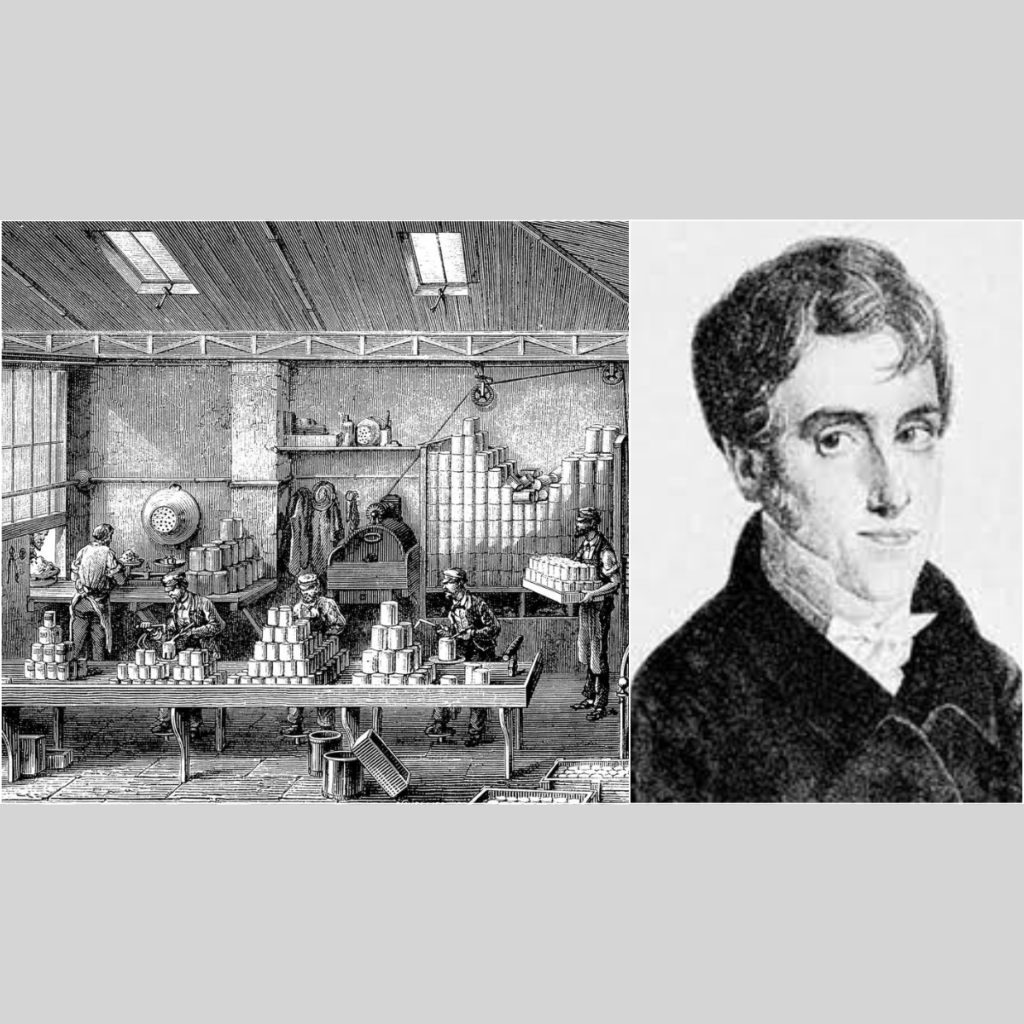
Nicolas Appert (c1750 – 1841) was a chef, confectioner and distiller when the French Revolution broke out. During the year of 1795, the French government of the time became alarmed at the difficulties of supplying edible food its many armies scattered across Europe. Preserving food, so that it can be stored through the winter or carried long distances to marauding armies, was an age old problem. Before it attracted the attention of the French, this problem had been solved largely by drying, smoking, fermenting, pickling or soaking in brine. None of which also preserved the taste of the food, or was a hundred percent certain. Food still went ‘bad’.

Appert took up the challenge. He also wanted to win the 12,000 franc prize that had been offered to anyone who could invent a way of preserving food in such a way that it would be easy to transport and not degrade or spoil. It took him 14 years of experimentation, but in 1810 he was ready to demonstrate the “Appert Method” and take home the money. Published in 1811 his book on food preservation became a best seller.
The principle that Appert discovered was that food such as soups, fruits, jams or stews could be prevented from decomposing it they were first sealed inside a bottle or jar and then immersed in boiling water for several hours. He had to exclude all air and hold the jar tightly closed with cork, wire and sealing wax for this to work properly.
Appert could never explain why his method worked – he never knew, but the success of his discovery could not be denied. With his prize money he set up a bottling factory (which was still in existence in 1933) that kept the French soldier, and many others, supplied with fresh, easily transported food.

Meanwhile, across the channel, the English were at work improving on Appert’s method. The problem was the glass bottles, which frequently broke. Peter Durand took out a patent in 1810 to use metal containers which were easy to make and hard to break. He covered iron cans (which would rust) with a thin plating of tin (which is not attacked by water), and invented the “tin can”. By 1813 Durand was supplying the Royal Navy with a steady stream of canned meat.
Canning was a slow process in Appert’s time. The cans of food had to be boiled in water for about five hours to make them completely sterile. But in 1860 it was found that adding calcium chloride to the boiling water made it possible to raise the temperature of that water more than 28 degrees Fahrenheit. This higher temperature worked better and faster. Canning became healthier and safer.
By 1819 canning arrived in the USA, but nobody wanted canned food until the outbreak of the civil war, when it was suddenly put on a crash mass-production basis. It took war to popularize the technology, something the revolutionary French would have appreciated.